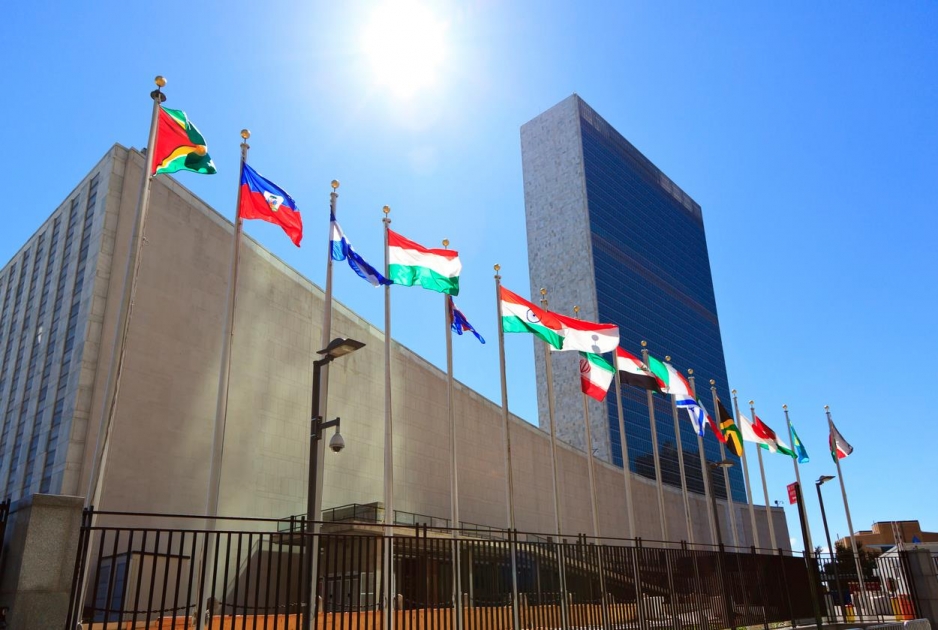Remarks to the Press by Permanent Representative Vassily Nebenzia following UNSC meeting consultations on the Middle East, including the Palestinian question, and UNSC consultations on Afghanistan
Q: Ambassador, do you have a Council statement on either issue [Palestine or Afghanistan]?
A: I am the Ambassador and Permanent Representative of the Russian Federation, and I speak to you in this capacity, not as President of the Security Council. We had two closed meetings and the Council did not authorize me to speak on its behalf. Those [closed consultations] are normally such kinds of meetings, unlike the open ones. We discussed two issues. One was the situation in the Middle East in light of what happened recently at the Temple Mount and the surrounding events, as well as the situation in Afghanistan related to the recent decision by Taliban to ban women’s work for the United Nations in that country.
Q: What do you make of the US blocking a statement on the Middle East?
A: Where do you know it from? I understand that you have some sources of information. I think that we agreed to continue discussing that. Perhaps to come up with something more substantive on the issue at a later stage.
Q: There are reports that Israel is notifying governments around the world that it's planning to retaliate against Lebanon. How dangerous would that be? What is Russia’s message?
A: The escalation that we are witnessing is dangerous and has been dangerous before Israel’s announcement. Besides, Israel already retaliated. I understand that in addition to missiles shelling of the Israeli territory, Israel has already retaliated by striking at the Lebanese territory. Luckily, we did not have any casualties after these strikes. But further escalation would not help resolving the current situation in Jerusalem, which basically, in our view, is the precursor of what happened later. These issues are all related, especially at a time when we are in the midst of the holiest celebrations of the three monotheistic religions, the Passover, Ramadan, and Easter. Further escalation won’t help.
Q: On Afghanistan, what did you discuss? Exactly? Is there agreement amongst the Council to do something about the situation regarding Afghan women? And also on the issue of recognition. The Taliban are asking for recognition and I know that at the end of this month, you are having a meeting to discuss restoring talks with the Taliban...
A: Who is having a meeting?
Q: The Council. There’s going to be a meeting on Afghanistan.
A: A Security Council meeting on Afghanistan, whatever the meeting is, is not a recognition of Taliban, but a discussion of the situation in Afghanistan, of various aspects. It does not limit itself only to the situation with women. There are other issues like drug trafficking, terrorism, humanitarian assistance, freezing of assets – a bunch of issues that have a telling on the situation in the country, which has a population of more than 37 million people. These people suffer from all these contributing factors.
We discussed the situation with the ban. Nobody supported the ban if I may put it so. Of course, everybody was appalled by the decision that Taliban made. The question is how to approach it. We agreed to work on a product by the Security Council, proposed by some delegations, to work it in a quiet atmosphere and come up with something that would be useful and balanced.
Q: You all agree on this issue and you all deplore the ban. Why was it so hard to come up with a statement?
A: Because the statement or whatever product that might come out of this decision will be negotiated.
Q: What effort are you talking about? You said before that UNSC decided, when it comes to the Middle East situation, to let diplomats take efforts on the ground to deescalate. Could you tell us if there is somebody from Russia or which diplomatic efforts you are talking about? Why didn’t the Security Council adopt a press statement or even press elements on the Middle East?
A: Everybody underlined the need to be united on this issue, as well as on Afghanistan and other issues as well. It is the best way for the Council to proceed. But before we come up with anything that will be a united, joined, agreed, negotiated product of the Council, which I think is preliminary to speak about, efforts are being made bilaterally and regionally. By the way, it is timely to stress that it was not accidental that we chose one of the signature events for our Presidency to be an open debate on the Middle East on 25 of April, which I hope will touch upon the Middle East settlement in its entirety and comprehensiveness.
Q: Did the Council have contact with UNIFIL today? Does it have any special instruction to UNIFIL if Israel starts…
A: UNIFIL was not brought up today, but of course the issue of what happened in Lebanon was raised by the delegations. Tor Wennesland who briefed us also referred to it.
Q: Will you be staying in New York? If the situation escalates, do you expect the Council to meet again?
A: I am staying in New York. We have to follow the events. Hopefully, it will not escalate but rather deescalate. At least, this is the preference of all members of the Council. But if there is a need, you know that the Council should meet 24/7 whenever a situation arises.
Q: In your national capacity, if Israel retaliates, what do you think UNIFIL should do if there is an escalation?
A: UNIFIL should keep vigilance over the border. It has a clearly defined mandate, which does not provide for military operations, as you know.
